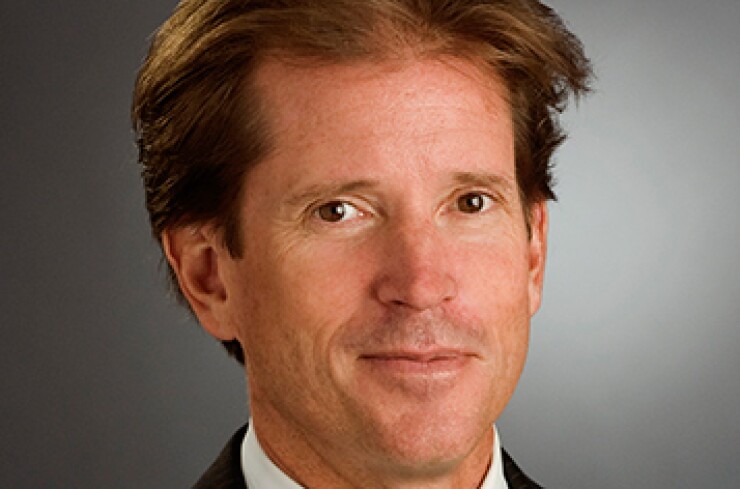
Connecticut leaders fear that the state is about to become a victim of the northeast casino boom that was born there in the 1990s.
The two huge tribal casinos in the state's southeastern corner began the march of casinos outside Atlantic City.
But now the state and the tribes are playing defense as gambling behemoth MGM Resorts International builds a casino in Springfield, Mass., just eight miles north of the state line.
Connecticut last year approved a third casino, with the related give-and-take the latest development in a northeast multi-state game of dominoes.
"The issue at hand is simple. If we do nothing to compete against MGM Springfield, Connecticut will lose more than 9,000 jobs and over $100 million in state tax revenue," said Andrew Doba, spokesman for MMCT Venture, a company formed by the Mohegan and Mashantucket Pequot tribes that operate the state's two original Mohegan Sun and Foxwoods casinos, respectively.
Their joint venture wants to construct and operate a $900 million so-called satellite casino north of Hartford along the Interstate 91 corridor either near downtown or Bradley International Airport in Windsor Locks. The tribes say a Hartford-area location would best intercept the loss of jobs and revenue to the Bay State.
"We're looking for the right way to do [things and] not make this a never-ending expansion of gaming in the state of Connecticut, but simply find a way to mitigate the loss of Connecticut jobs," Mohegan Tribal Council Chairman Kevin Brown told the state General Assembly's Commerce Committee.
Revenue is a concern these days in Connecticut, one of the nation's most financially enigmatic states. Its revenue stresses and high debt and pension liability contrast with enviable per-capita wealth metrics, notably in Fairfield County near New York City.
Moody's Investors Service, Standard & Poor's and Kroll Bond Rating Agency have cited revenue strain in assigning negative outlooks on the state's general obligation bonds. Moody's and Kroll lowered their outlooks recently, S&P last year. Fitch Ratings went the other way, improving its outlook to stable.
According to state budget Director Benjamin Barnes, Connecticut has lost 40,000 high-wage jobs over the past several years, affecting revenue from capital gains taxes as well as income, corporate and sales taxes. Connecticut also generated negative headlines in January when Fortune 500 behemoth General Electric Co. said it would relocate its headquarters from Fairfield, Conn., to Boston.
Meanwhile, a battle looms over Connecticut casinos in a separate venue, the federal courts. On March 7, Kent, Conn.-based Schaghticoke Tribal Nation, which is not federally recognized, sued the state in the U.S. District Court for the District of Connecticut in Hartford, calling a casino law the state adopted last year unconstitutional. MGM is bankrolling the Schaghticoke lawsuit and former U.S. senator and presidential candidate Joseph Lieberman is representing it in court.
"Without any competitive bidding or gaming study, Connecticut shut out the Schaghticoke Tribal Nation and awarded to one pair of Native American tribes the exclusive ability to develop a highly valuable commercial enterprise," said Schaghticoke Chief Richard Velky.
The Commerce Committee two weeks ago shot down a bill that had called for yet another study.
"Anybody can make up a study to support anything, but you don't need a study to see that these things are losers," said Anthony Figliola, vice president of Empire Government Strategies in Uniondale, N.Y. "Just look at Atlantic City. If it were to succeed it should have been there."
Four of 12 casinos failed in Atlantic City, N.J., in 2014, and the city is on
Connecticut, said Figliola, should "build a tax base and move aggressively so that more companies like GE won't move out."
Rhode Island, Massachusetts and New York State are also in casino buildout mode, building facilities the edges of their borders with an eye toward customers from neighboring states.
Figliola calls it a fool's errand.
"I think state and municipal officials think it will help generate additional tax revenue to offset deficits to states and cities. The problem is, it won't," he said. "It's a loser," Figliola said. "It's not a wealth multiplier and I'm shocked that investors are out there willing to invest in these places."
According to casino consultant
Barrow estimated that Connecticut's government could lose nearly $100 million annually by 2019 in revenue-sharing payments from the two established casinos, because of the Springfield casino.
Fred Carstensen, the director of Connecticut Center for Economic Analysis at the University of Connecticut School of Business and hired by MGM, questioned the viability of a small Hartford-area casino.
"We have had no economic growth in Connecticut except that effectively generated by the casinos for 28 years. And they have been wonderful citizens," he said. "The problem is, that's all irrelevant. None of that speaks to the core question which is whether a small casino in the Hartford area would in fact help competitiveness of Foxwoods and Mohegan Sun.
"I actually think that the small casino idea not only may fail in terms of either job preservation or revenues to state, but the small casino idea in fact may become a zombie."
Oxford Economics and Strategic Market Advisors,
Sen. Scott Frantz, R-Greenwich, is among the skeptics.
"I don't think you'll see a casino in Fairfield County, bringing all the same ills and bad stuff," said Frantz, the ranking member of the General Assembly's finance, revenue and bonding committee as well as the commerce committee. "I'm against it, and I'm against casinos in general. Casino gambling is a regressive tax against poor people and too many are harmed by it."
In addition, said Frantz, gambling saturation has taken hold.
"Other facilities are going up, Keno is now legal in Connecticut and you have the prospects of online gambling. It's complicating the picture."





